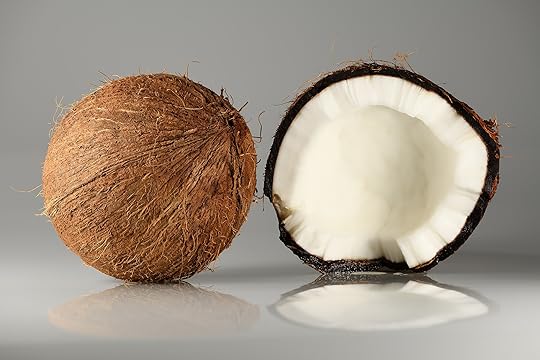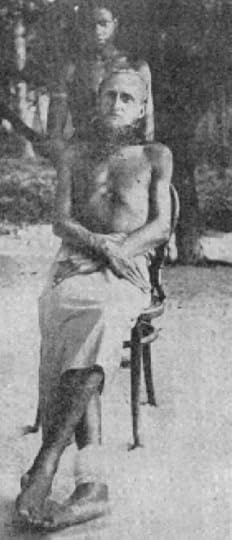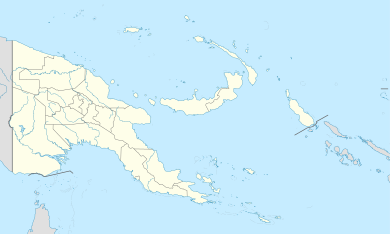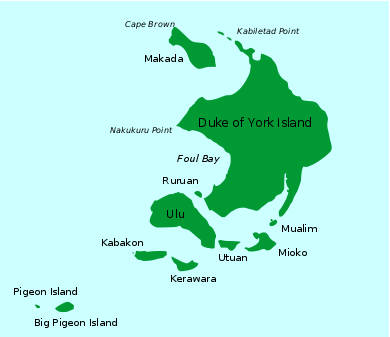What do you think?
Rate this book


242 pages, Hardcover
First published January 1, 2012
And so, on board the Prinz Waldemar we find the young August Engelhardt from Nuremberg: beard-wearer, vegetarian, nudist. Some time ago he had published in Germany a book with the enthusiastic title A Carefree Future; now he was traveling to New Pomerania to purchase land for a coconut plantation – how much exactly and where, he did not yet know. He was to become a planter – not out of greed for profit, but out of a deeply held belief that he could change forever, by the force of his grand idea, this world that seemed to him so cruel, stupid, and horrible.
Engelhardt finished his tea, glancing at the thin, precious Chinese porcelain of the cup in his hand and the rich woman smiling obligingly there on the canapé before him, and heard the word Kabakon whispered ever so softly in his mind. He placed the cup back onto the tray carefully and said he would take the island, sight unseen; he would pay sixteen thousand marks in cash, borrowing the rest, if she wouldn’t mind, against his own production. Queen Emma did not deliberate for long; here a wispy little Jesus was coming to her wanting to pay sixteen thousand marks for a worthless islet without haggling and, on top of that, pledged to sign over his entire yield to her for two years – a quick, rough approximation – and all this for a little piece of land she had inveigled from a Tolai chief for two old rifles, a crate of axes, two sails, and thirty pigs. She offered her hand rather entrancingly, without getting up; Engelhardt took it, and they shook in agreement.
…modernity had dawned; poets suddenly wrote fragmented lines; grating and atonal music, which to unschooled ears merely sounded horrible, was premiered before audiences who shook their baffled heads, was pressed into records and reproduced, not to mention the invention of the cinematograph, which was able to render our reality exactly as tangible and temporally congruent as it occurred; it was as if it were possible to cut a slice of the present and preserve it in perpetuity between the perforations of a strip of celluloid.
All this, however, did not move Engelhardt; he was on his way toward withdrawing not only from modernity dawning the world over, but altogether from what we non-Gnostics denote as progress, as, well, civilization. Engelhardt took a decisive step forward onto the shore; in reality, it was a step back into a barbarism most exquisite.





Beneath the long white clouds, beneath the resplendent sun, beneath the pale firmament could be heard, first, a prolonged tooting; then the ship's bell emphatically sounded the midday hour, and a Malay boy strode, gentle-footed and quiet, the length of the upper deck so as to wake with a circumspect squeeze of the shoulder those passengers who had drifted off to sleep again after their lavish breakfast.
Unter den langen weßen Wolken, under der prächtigen Sonne, unter dem hellen Firmament, da war erst ein langgedehntes Tuten zu hören, dann rief die Schiffsglocke eindringlich zum Mittag, und ein malayischer Boy schritt sanftfüßig und leise das Oberdeck ab, um jene Passagiere mit behutsamem Schulterdruck aufzuwecken, die gleich nach dem üppigen Frühstück wieder eingeschlafen waren.
Sallow, bristly, vulgar Germans, resembling aardvarks, were lying there and waking slowly from their digestive naps: Germans at the global zenith of their empire.
Bläßliche, borstige, vulgäre, ihrer Erscheinung nach an Erdferkel erinnernde Deutsche lagen dort und erwachten langsam aus ihrem Verdauungsschlaf, Deutsche auf dem Welt-Zenit ihres Einflusses.
[A]nd if at times, in the course of things, parallels arise with a later German romantic and vegetarian who perhaps ought to have remained at his easel, then this is entirely intentional and naturally, do pardon, consistent in nuce.
und wenn dabei manchmal Parallelen zu einem späteren deutschen Romantiker und Vegetarier ins Bewußtsein dringen, der vielleicht lieber bei seiner Staffelei geblieben wäre, so ist dies durchaus beabsichtigt und sinnigerweise, Verzeihung, in nuce auch kohärent.
